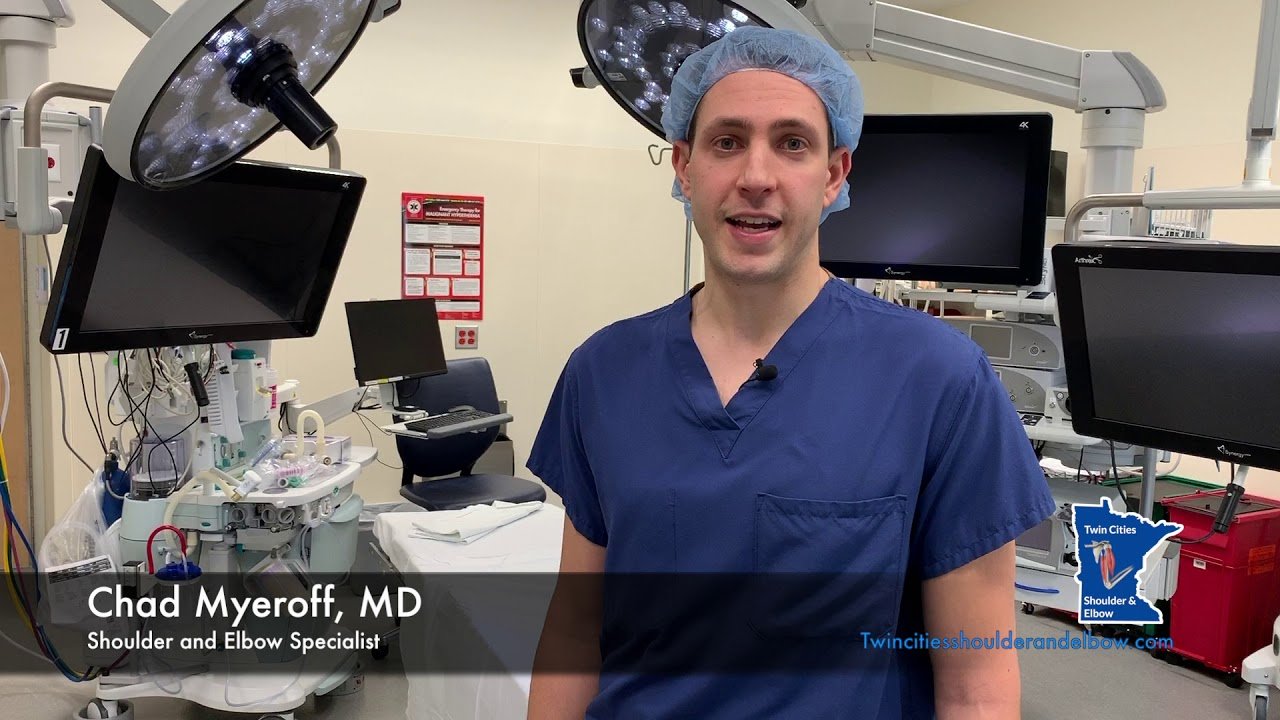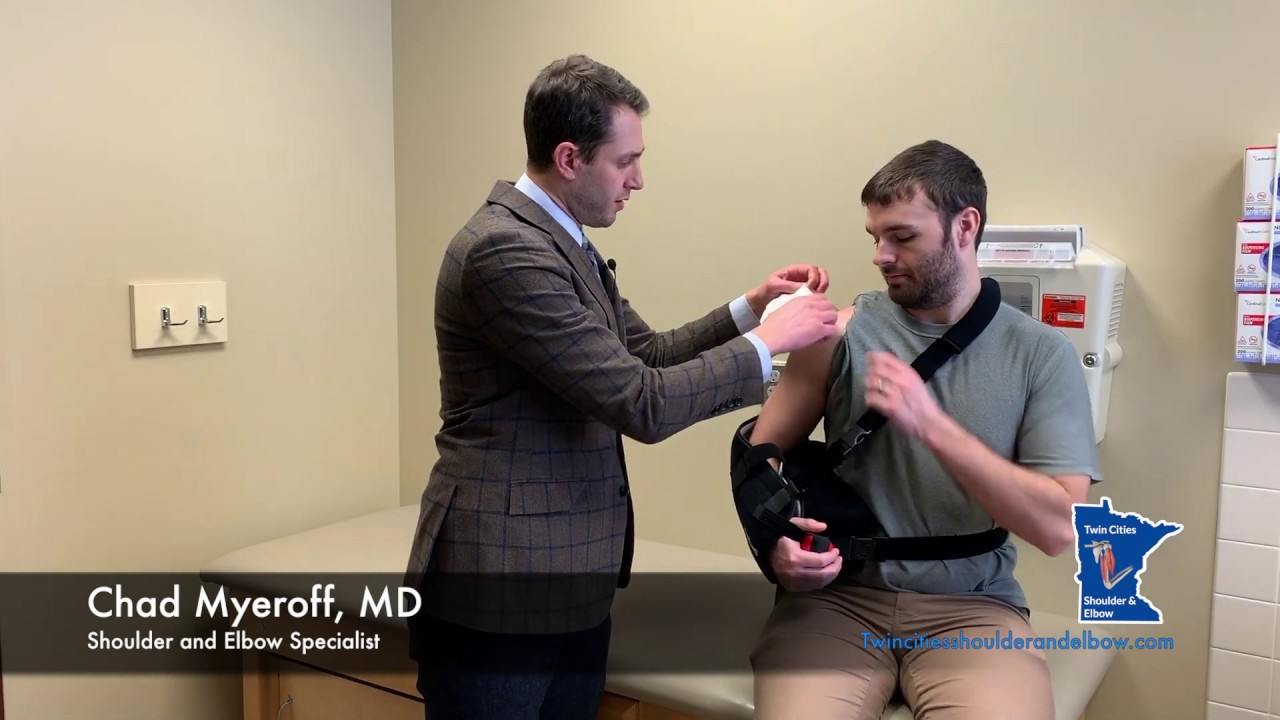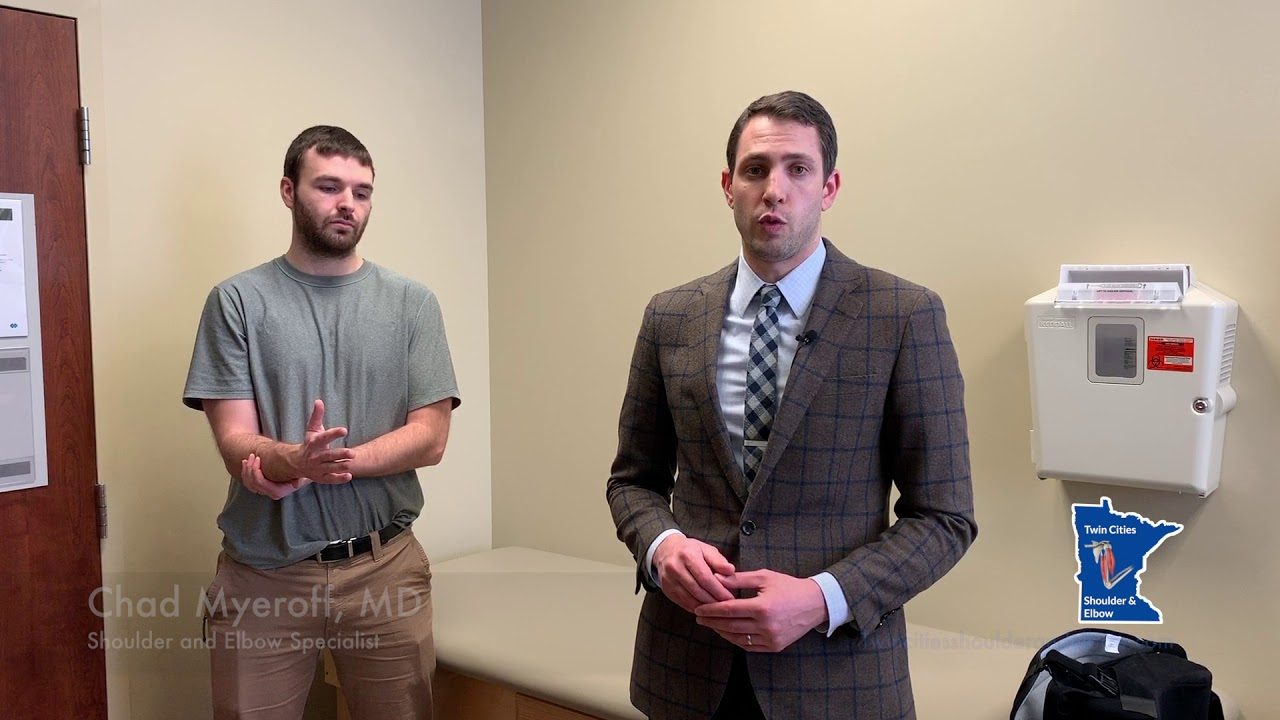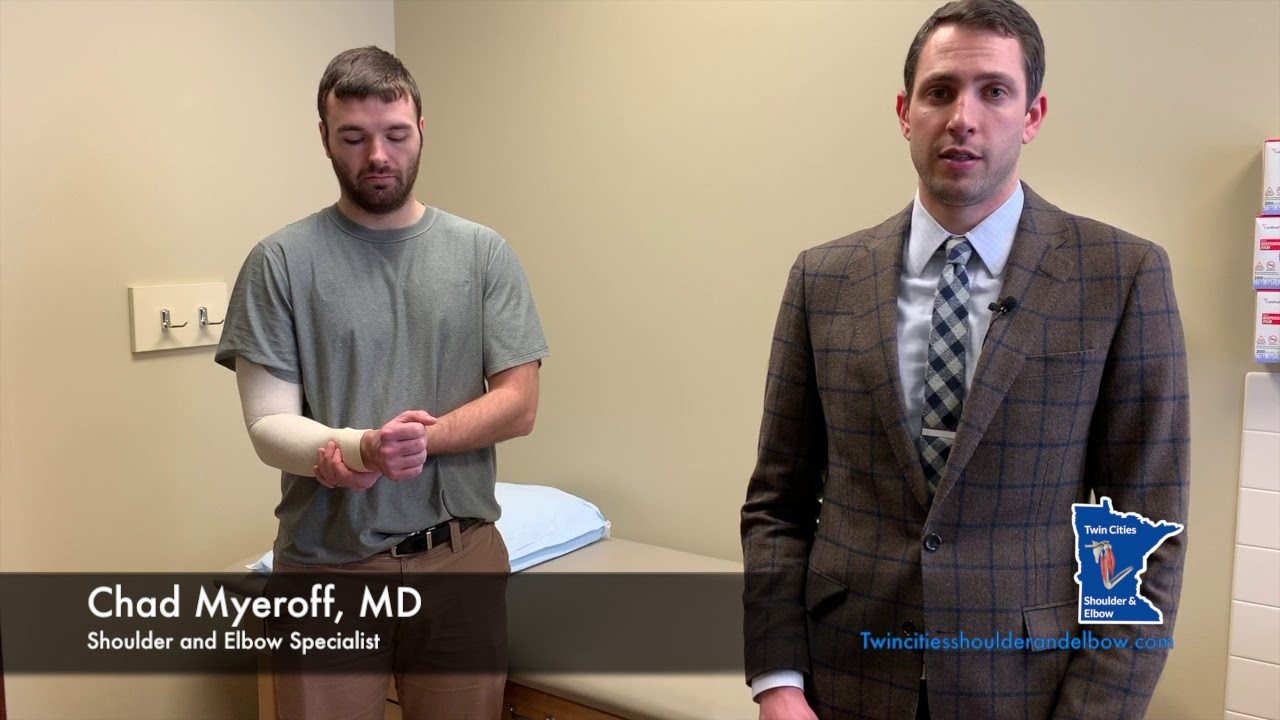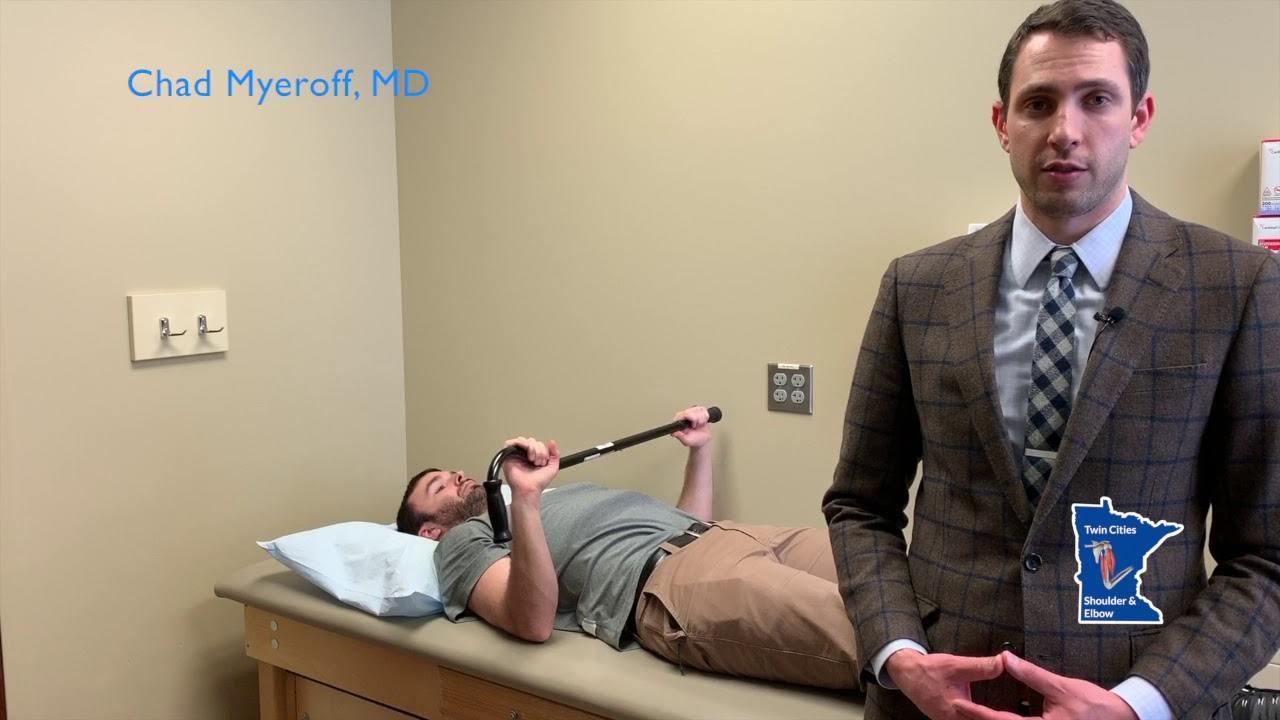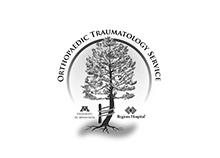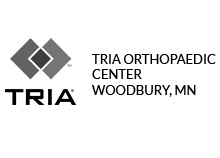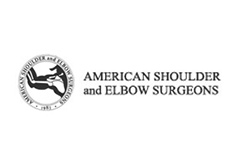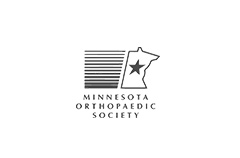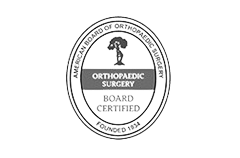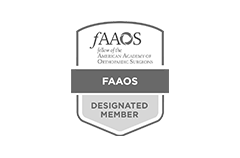Scapula Fractures
- Diagnosis
- Non-operative Options
- Operative Options
- Before Your Surgery
- After Your Surgery
- Your Rehab
The shoulder is made up of the clavicle (collar bone), humerus (upper arm) and scapula (shoulder blade). The shoulder is a ball and socket joint where the ball of the upper arm bone articulates with the socket of the shoulder blade called the glenoid cavity. The shoulder blade is a flat triangular bone present on either side of the upper back. It articulates with the other two bones at the glenohumeral joint and acromioclavicular joint to provide stability and mobility to the arm. Scapula fracture refers to a fracture of the shoulder blade.
Causes
Scapula fractures can result from severe trauma such as a motor vehicle accident, a fall from a height, contact sports, a fall on an outstretched arm and direct blow on the shoulder during a fight.
Signs and Symptoms
The signs and symptoms of scapula fracture are:
- Severe pain with movement
- Swelling on the back of the shoulder
- Numbness, tingling or weakness of the shoulder and arm
Scapula fractures are rare but can occur with rib or skull fractures and lung or spinal cord injuries.
Diagnosis
To diagnose a scapula fracture your doctor reviews your medical history and performs a physical examination. Imaging studies including X-rays and a CT scan may be ordered.
Nonsurgical Treatment of Scapula Fracture
Scapular fractures can be treated with nonsurgical or surgical intervention depending upon the type of fracture.
Nonsurgical treatment involves immobilizing the shoulder with a sling for 3 to 4 weeks, allowing the bones to heal on their own. Your doctor will prescribe medication to manage your pain. Physical therapy and stretching exercises should be started a week after the injury to reduce stiffness.
Surgical Treatment of Scapula Fracture
Scapular fractures that involve displacement at the glenoid articular surface, or fracture of the scapula neck or acromion process may require surgery to repair.
Surgery is performed to align and hold the displaced bones in their proper anatomical position until they heal. This is achieved with the help of screws and plates. The surgery can be performed traditionally by an open method or by a minimally invasive open reduction internal fixation surgery (ORIF). ORIF surgery as compared to open surgery is done by smaller incisions and thus recovery is much faster.
Scapula fractures are rare and uncommon. They are usually treated by conventional methods. However, scapula fractures resulting in displaced bones may require surgical intervention to prevent significant life-long disability.
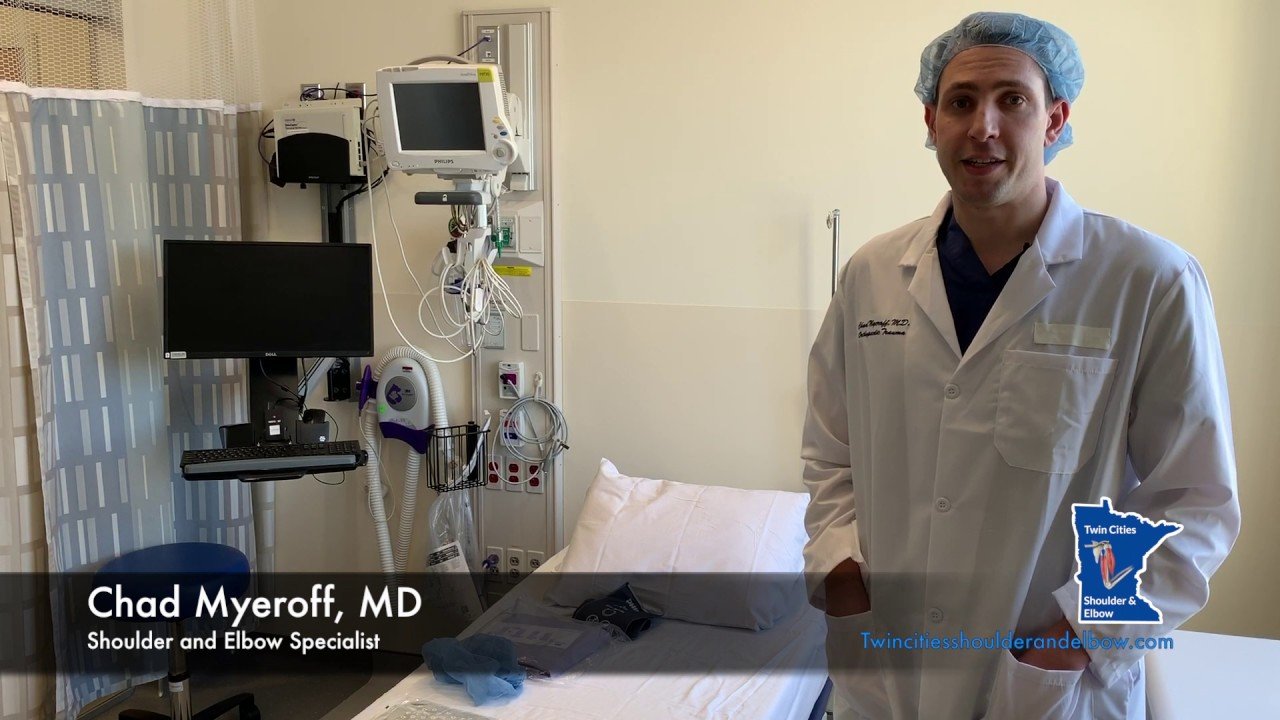
Once you and your doctor decide that surgery will help you, you will need to learn what to expect from the surgery and how to actively participate in the treatment plan for the best results afterward.
Preparing mentally and physically for surgery is an important step toward a successful result. Understanding the process, and your role in it, will help you recover more quickly and have fewer problems.
Before surgery, your doctor will perform a complete physical examination to make sure you don’t have any conditions that could interfere with the surgery or the outcomes.
- Routine tests, such as blood tests and X-rays may be performed.
- Discuss any medications you are taking with your doctor as you may have to stop or alter your intake before surgery. If you are taking aspirin or anti-inflammatory medications or any drugs that increase the risk of bleeding, you will need to stop taking them one week before surgery to minimize bleeding.
- Discuss with your doctor about preparing for potential blood replacement, medical interventions and other treatments prior to surgery.
- Report any infections to your surgeon. Surgery cannot be performed until all infections have cleared up.
- If you smoke, you should stop or cut down as smoking interferes with wound healing and can affect your recovery.
- Have someone available to take you home, as driving is not recommended for at least 24 hours or as advised.
- You may need help with everyday tasks such as cooking, shopping and laundry.
- Put items that you use often within easy reach, so you won’t have to stretch and bend as often.
- After Surgery Video
- Shoulder Surgery Recovery Video
Once you and your doctor decide that surgery will help you, you will need to learn what to expect from the surgery and how to actively participate in the treatment plan for the best results afterward.
Preparing mentally and physically for surgery is an important step toward a successful result. Understanding the process, and your role in it, will help you recover more quickly and have fewer problems.
Before surgery, your doctor will perform a complete physical examination to make sure you don’t have any conditions that could interfere with the surgery or the outcomes.
- Routine tests, such as blood tests and X-rays may be performed.
- Discuss any medications you are taking with your doctor as you may have to stop or alter your intake before surgery. If you are taking aspirin or anti-inflammatory medications or any drugs that increase the risk of bleeding, you will need to stop taking them one week before surgery to minimize bleeding.
- Discuss with your doctor about preparing for potential blood replacement, medical interventions and other treatments prior to surgery.
- Report any infections to your surgeon. Surgery cannot be performed until all infections have cleared up.
- If you smoke, you should stop or cut down as smoking interferes with wound healing and can affect your recovery.
- Have someone available to take you home, as driving is not recommended for at least 24 hours or as advised.
- You may need help with everyday tasks such as cooking, shopping and laundry.
- Put items that you use often within easy reach, so you won’t have to stretch and bend as often.
Want to know more?
- Physical Therapy Intro Video
- Finger ROM Video
- Standard Elbow ROM Video
- Shoulder ROM Video
Want to know more?
- Download Dr. Myeroff's Shoulder Stretches Information Sheet
- Download Dr. Myeroff's Standard Elbow ROM Diagram Information Sheet
- Download Dr. Myeroff's Finger ROM Diagram Information Sheet
- Download Dr Myeroff's Post-Op Protocol for Scapula Body Fracture – Non-operative
- Download Dr Myeroff's Post-Op Protocol for Scapula Body Fracture – ORIF


